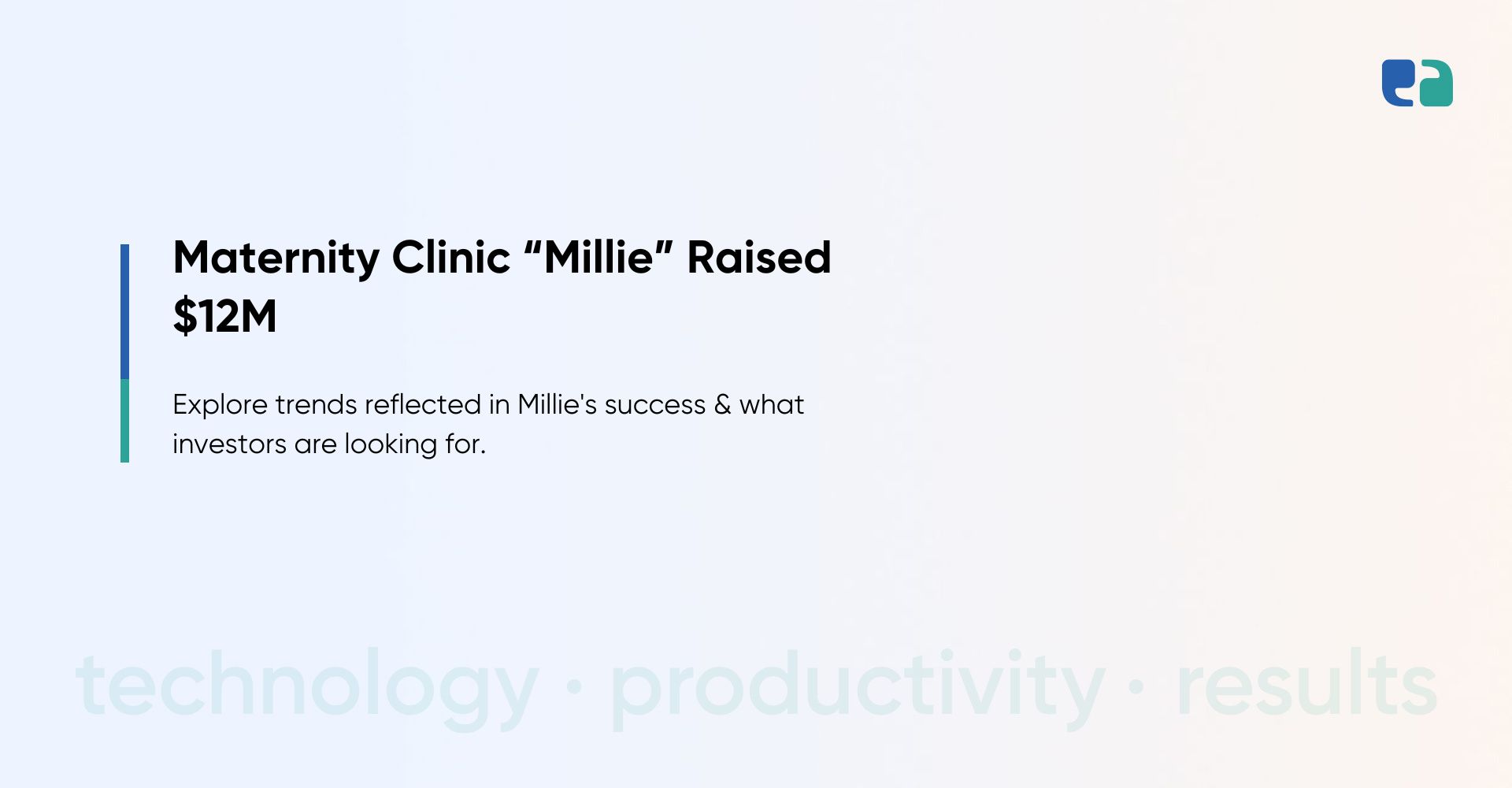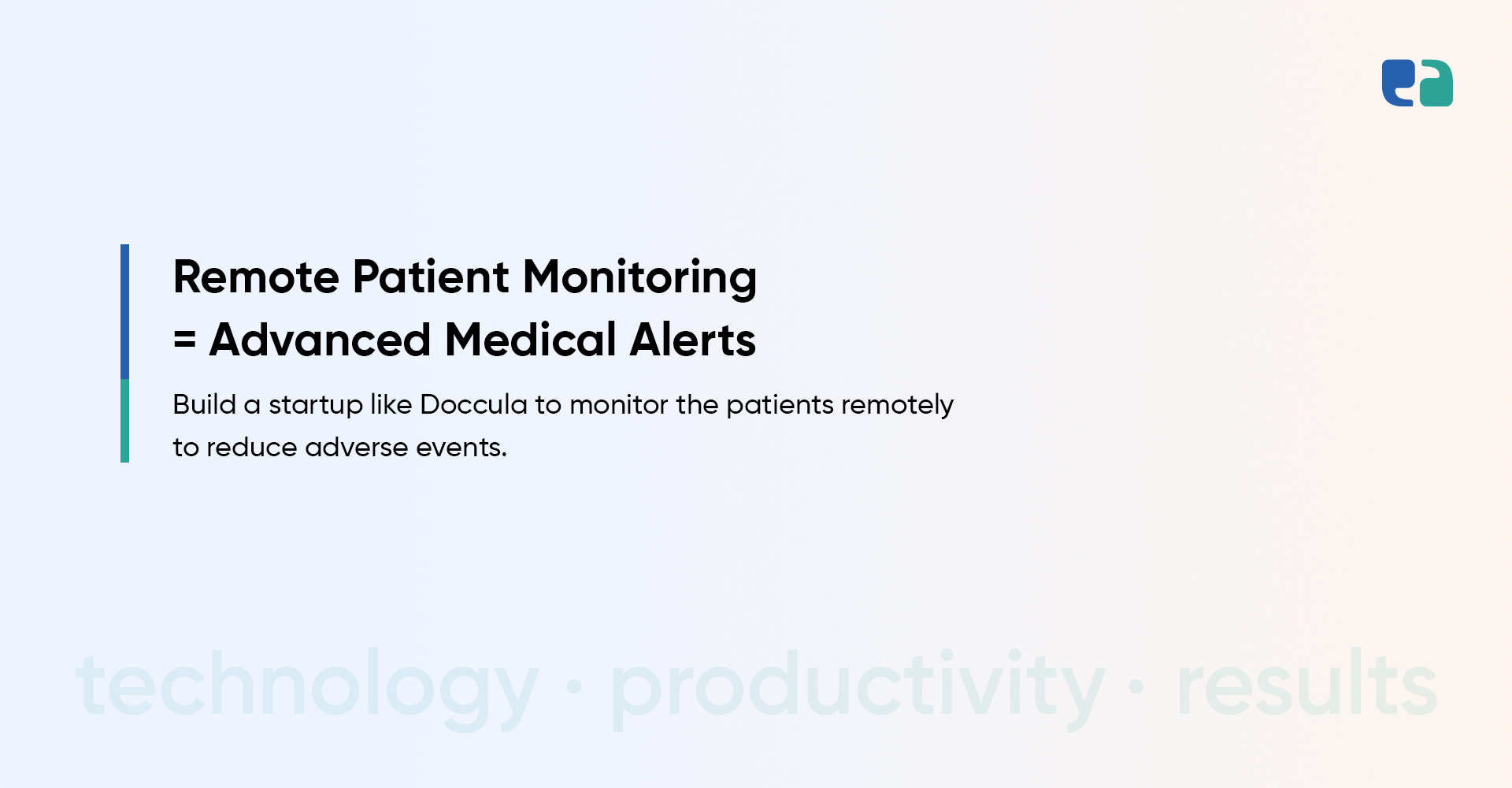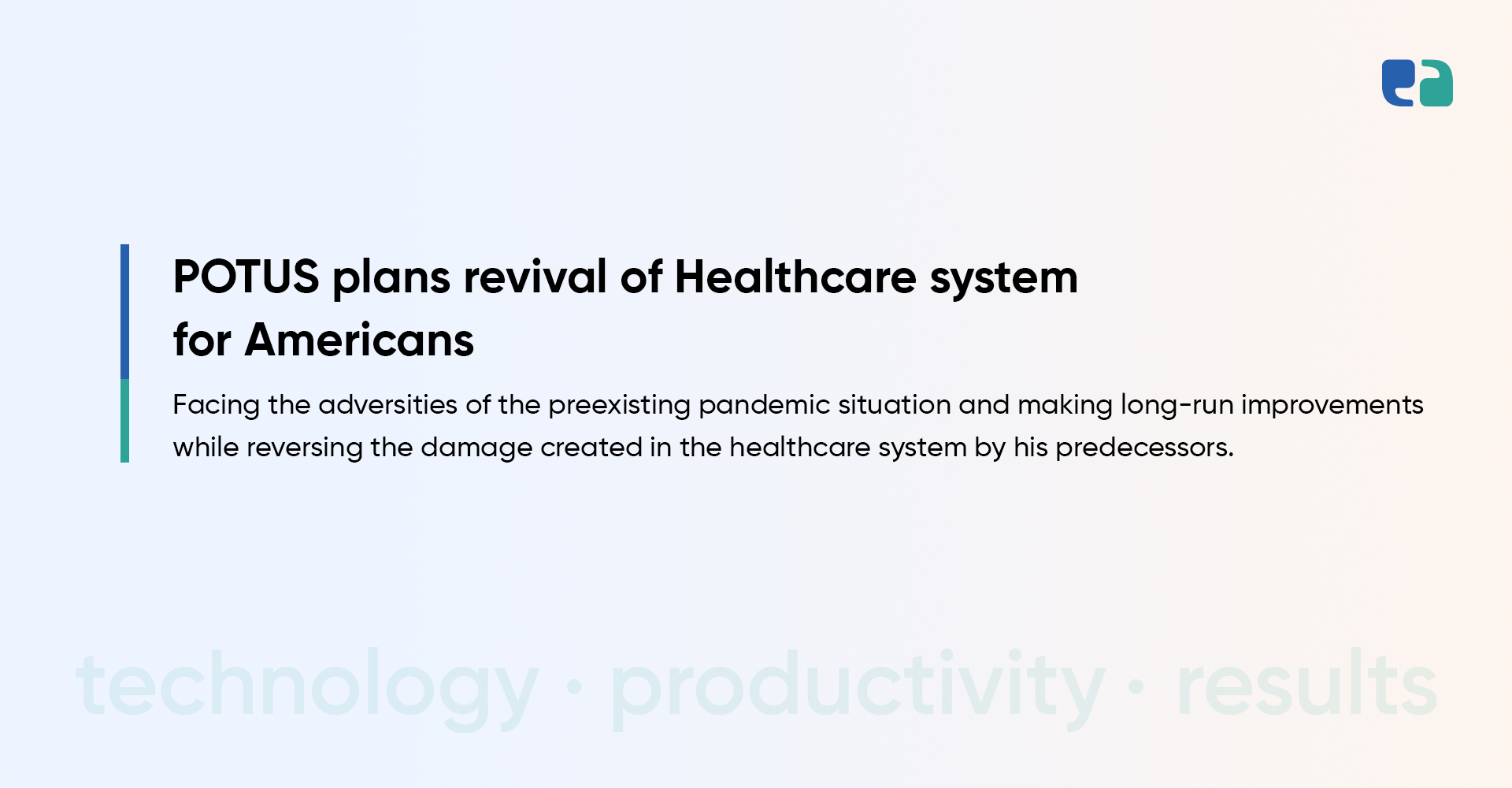Big news in maternity care—Millie just raised $12 million in Series A funding, led by an all-female group of VCs.
That’s a huge vote of confidence in better, tech-driven maternal health.
In total, Millie has now raised nearly $19 million.
The funding comes from TMV, Foreground Capital, Pivotal Ventures, March of Dimes, and more.
What’s cool? Women investors leading the charge in a space that’s been overlooked for too long.
And it’s part of a bigger shift—women’s health investments have jumped 314% since 2018, even growing 5% last year when overall funding dipped.
Millie is making waves with its hybrid care model, mixing in-person visits, virtual care, remote monitoring, and an app.
The results? 30% better C-section rates and 67% better preterm birth rates than the national average.
With this funding, they’re expanding services (think miscarriage counseling, gynecological care, AI-driven support) and opening new clinics, starting in California with Good Samaritan Hospital.
Millie’s success isn’t just about one company—it’s a sign that maternity care is finally getting the innovation and investment it deserves.
Background on Millie: Let’s Take a Closer Look

Millie was founded by Anu Sharma, who experienced firsthand the gaps in maternity care. After giving birth, she had to self-diagnose postpartum preeclampsia and rush back to the ER.
That moment made her realize how much better maternity care could be. With 20 years in healthcare, she set out to create a more proactive and complete care model.
Millie takes a 360-degree approach to maternity care. It’s not just about doctor visits—it’s about ongoing support at every stage.
The company runs on a hybrid model, combining in-person clinic visits, virtual care, remote monitoring, and an app to keep mothers connected and supported.
What Millie Offers
- Maternity and gynecology care
- Prenatal care, labor and delivery support, and postpartum care
- Postpartum coaching and mental health counseling
- Lactation support and nutrition counseling
- Miscarriage management and support groups
Millie accepts all major insurance plans, including Commercial and Medicaid, making it more accessible.
It also partners with Good Samaritan Hospital and other healthcare providers to expand its reach and integrate with existing health systems.
By blending technology with personal care, Millie is redefining maternity care to be more supportive, inclusive, and patient-centered.
The Significance of the Funding: Why This $12M Funding Matters
Millie’s $12 million Series A funding is a big deal.
It’s not just about the money—it’s about what this investment will help Millie achieve.
With this funding, Millie can expand its services, open new clinics, and bring AI-powered maternity care to more women.
Key Millie Maternity Care Funding Details
- Opening new clinics – Millie is launching more clinics, starting with a second location in San Francisco’s South Bay, in partnership with Good Samaritan Hospital. This means more women will have access to Millie’s unique maternity care model.
- Expanding women’s health services – Millie is adding gynecological care and miscarriage counseling to provide continuous care beyond pregnancy.
- Boosting AI-powered care – With data from thousands of patient visits, Millie is improving its AI-enabled care operations to make maternity care more personalized, efficient, and proactive.
Trends Reflected in Millie’s Success
Millie’s success and recent funding round highlight several key trends:
1. A Growing Focus on Women’s Health
- Investment in women’s health startups has jumped 314% in five years.
- More women are looking for better maternity care options beyond the traditional model.
2. A Demand for Better Maternity Care
- Patients want personalized, patient-first care instead of one-size-fits-all solutions.
- Millie’s model supports women from conception to postpartum, ensuring continuous care.
3. Investors See the Opportunity
- Despite a 27% drop in global venture funding (2022-2023), women’s health tech investments grew by 5%.
- Early-stage women’s health startups are undervalued compared to other health tech companies, meaning there’s room for growth.
4. The Rise of Midwifery-Led Care
- 80% of pregnancies are low-to-moderate risk—perfect for midwife-led care.
- Midwives help lower C-section rates and improve patient satisfaction.
5. The U.S. Lags Behind in Midwife Usage
- Countries like Canada, the U.K., and Germany rely heavily on midwives.
- The U.S. underutilizes midwifery, but Millie is helping to change that.
With these shifts, maternity care is evolving fast. Millie is leading the way, blending technology, midwife-led care, and a patient-centered approach to reshape the future of maternal health.
Maternal Health Crisis & How This Million Dollar Maternal Health Startups Are Making a Difference

Maternity care in the U.S. is facing a crisis.
Over 35% of counties lack proper maternity services, and the maternal mortality rate is significantly higher than in other developed nations.
The shortage of OB-GYNs and increasing healthcare costs make it even harder for women to access quality care.
To bridge these gaps, maternal health startups are stepping up with innovative, patient-focused solutions.
How Startups Are Transforming Maternity Care
- Millie focuses on inclusive care, serving diverse communities where 50%+ of patients identify as BIPOC. They accept Medicaid and major insurance plans to make care more accessible.
- Oula combines midwifery with obstetrics, leading to a 26% better C-section rate and a 61% lower preterm birth rate than NYC benchmarks.
- Mahmee uses tech-driven care coordination to ensure better support for mothers throughout pregnancy and postpartum.
Why These Models Work
Startups like Millie, Oula, and Mahmee are proving that personalized, tech-enabled maternity care solutions leads to better outcomes:
- 30% lower C-section rates for first-time, low-risk mothers (Millie).
- 67% better preterm birth rates (Millie).
- Higher patient satisfaction, with Millie’s NPS score above 90.
With the rise of AI-driven insights, midwifery-led care, and better care coordination, maternal health innovations are reshaping the future of maternity care in the U.S.

How Innovation is Shaping Maternal Healthcare
These trends are shaping the future of maternity care, making it more accessible and patient-focused.
1. The Rise of Digital Health
Digital technology is transforming healthcare, making it more efficient and accessible.
- Telehealth is helping women in underserved areas get the care they need.
- Remote patient monitoring ensures continuous care during pregnancy and postpartum.
- AI-powered tools are improving care quality at scale.
- Millie integrates digital platforms and AI to provide round-the-clock support.
2. Investment in Women’s Health
Women’s health is finally getting the attention it deserves.
- Femtech startups are tackling key issues from fertility to menopause.
- Even with a slowdown in startup funding, women’s health is on track for record investments.
- Millie’s success shows that investors see the potential in this space.
3. The Future of Personalized Care
One-size-fits-all healthcare doesn’t work anymore.
- AI and data analytics help create customized treatment plans.
- Wearable tech and digital tools give women more control over their health.
- At-home testing and virtual care make healthcare more convenient.
As more startups combine AI, data, and digital tools, maternal healthcare will become smarter, more accessible, and more personalized.
Women’s Health Technology & Trends to Watch in 2025
Women’s health is evolving, with new trends shaping the future of care. From AI-powered support to wearable tech, here’s what’s making waves in 2025.
1. Predictive & Preventative Care
More women are taking proactive steps to manage their health.
- Predictive models help forecast menopause and its impact.
- Lifestyle changes, supplements, and at-home tracking tools are helping ease symptoms.
2. Wearable Tech & Digital Biomarkers
Smart devices are making health tracking easier and more affordable.
- Wearables provide real-time health insights using digital biomarkers.
- More data sharing will lead to better, more personalized care.
3. AI Assistants for Women’s Health
AI is making healthcare more convenient.
- Many women skip appointments due to busy schedules and long wait times.
- AI-powered tools and asynchronous telehealth bring flexible care options.
4. Market Consolidation in Femtech
Big players are joining forces to accelerate innovation.
- Mergers and acquisitions help create stronger, more effective solutions.
- Areas like menopause care and non-hormonal birth control are seeing new advancements.
5. Challenges in Femtech
Despite progress, women’s health still faces major gaps.
- Less than 2% of health tech funding goes to women’s health.
- Women are often excluded from clinical trials, slowing innovation.
To truly move forward, the industry must bridge these gaps, fund innovation, and make women’s health a priority.



